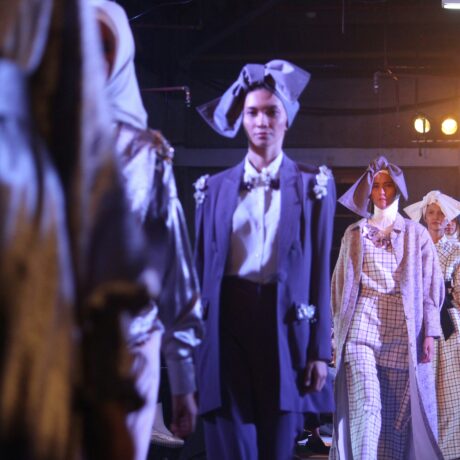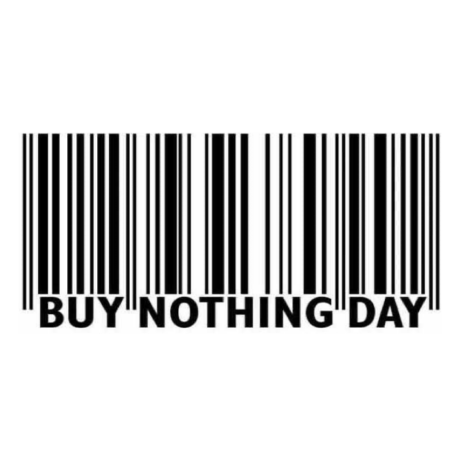Should we still wash at 30°C?
We are in such uncertain times. In a moment of human history when so many of us are losing those we love, no fool would argue that solace lies in putting on a wash. Yet instead of being viewed as drudgery, Marion Hume reminds us that household chores can provide routine and small domestic moments that take our minds away from the harsh realities of life. It’s also a good time to savour looking after your clothes, read your care labels and use a bit of good old fashioned common sense.
Should we still wash at 30 degrees to save the planet, when we want to boil wash to save our lives? Before coronavirus swept the world, the word was getting out among mindful consumers that what we do with our clothes after we’ve bought them has every bit as significant an impact on our planet as what goes into the production of them. We were becoming mindful, we were turning down the dial. What do we do now?
The planet remains fragile. The answer as to when to put the planet first lies with each of us and we should let common sense dictate our choices. What we all understand is that those who are in the front line in the battle against the virus – whether they are tending to patients in hospitals, looking after our elderly citizens in care homes or driving the buses – may need to wash their clothes at high temperatures. So one thing the rest of us can do to counterbalance that is to turn the dials on our washing machines down when it makes sense. Perhaps separate the clothes you wear in any public place from those worn inside or in your garden and wash your “at home” clothes at 30. Just as you wouldn’t dial 999 except in emergency, think about keeping the top of the dial free for those who need it.
But it’s hard, isn’t it? We know that filling the washing machine is better for the planet than running half loads, yet we want to separate the clothes we are wearing in what is left of our “public” lives from those worn in our now much expanded private lives. On this, don’t beat yourself up. Sometimes we need a little help and it’s good to see washing machine manufacturers taking some responsibility. AEG recently launched its Care Label Project which makes a lot of sense. Their new care label says simply “Don’t Overwash”. Just as we’ve temporarily packed away our Keep Cups, and we utterly understand that our front line workers want their hot drinks in single-use throwaways, we have to employ balance in our behaviours. Those of us who have preached the use of Guppy Bags, which remove microfibres but then have to be cleaned out by hand, may be tempted now to hurl anything worn in public straight into the drum. Do what you think is right for the situation in which you find yourself.
There are things we can be doing right now.
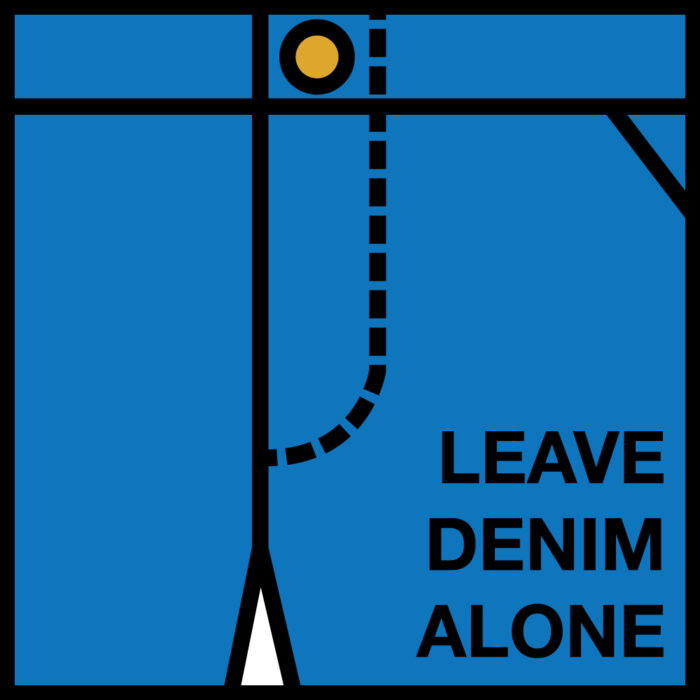 1. Leave your jeans alone.
1. Leave your jeans alone.
Now that we can all wear jeans to work, make a pact to hardly wash those at all. Denim is sturdy; its lovely pliable fibres don’t like being all tight and box fresh, they like to relax and breathe out the more they are worn.
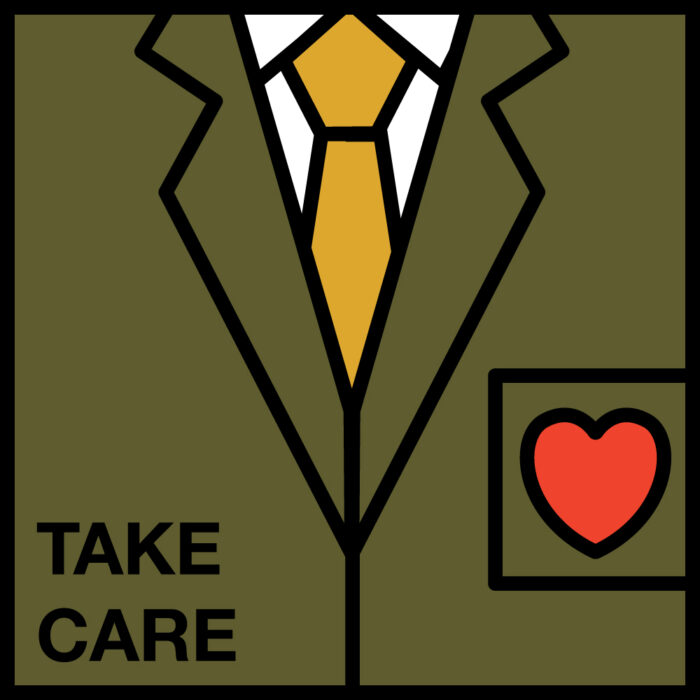
2. Look after your work clothes.
It’s nice to dress for work, especially when WFH and on Zoom. Dressing for the morning meeting can be a useful tool towards taking your mind into the office – and might even be signal to children being home-schooled that you are “not at home” (Ok, that’s wishful thinking, but worth a try). Nice clothes on just before Zoom, nice clothes off straight after and hung on hangers, outside the wardrobe to give them some air. If you treat your clothes well, they will return the favour; you won’t need to wash them for ages.

3. Organise your wardrobe
Many of us are using this time at home to fillet through our wardrobes and get rid of what we no longer need. Use the time to really get to know your clothes and value what you have. You might want to sort through and have an organise while you are there so you can wear the clothes you really love more often.
While it is upsetting to see the reckless piles of clothes fly-tipped around clothing recycling bins, at least it shows that the message that we can recycle textiles, in normal times, is getting through. But these are not normal times. Wash the clothes you no longer need and fold them to Marie Kondo levels of perfection. If you happen to hoard tissue paper, wrap each piece beautifully. After we re-emerge your gift to those in perilous need, such as a local refugee centre, will be pristine and beautiful. (Of course anything damaged or stained should be put into a pile for some creative upcycling/customisation or if all else fails, cut into rags).
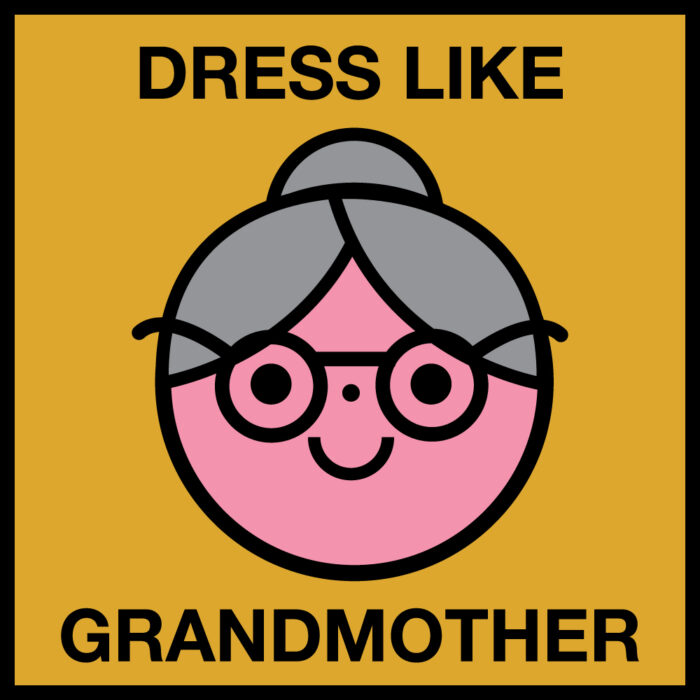
4. Dress like your grandmother
Or depending on your age your great, or great great grandmother. Discover the joy of an apron or a house coat. Back in the days when the vast majority of women worked only within the home, women popped on a pinny or a housecoat (indeed Americans call this item a popover). If the single best way to be planet conscious is not to waste energy or water, therefore to wash less often, don’t get your clothes dirty in the first place. And housecoats have gone so out of fashion, you will be way ahead of the curve.
5. Say goodbye to sequins.
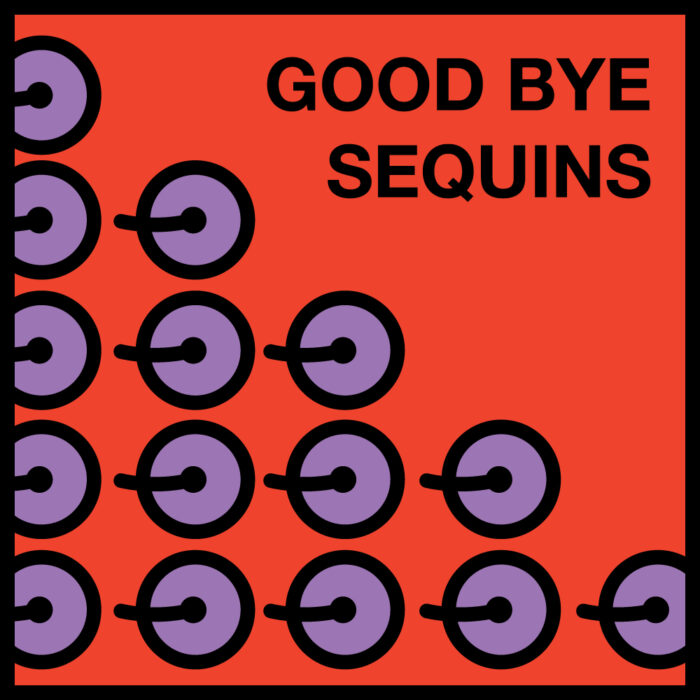
Yes they sparkle, but now you can’t dump piles of clothes at the dry cleaners (and those chemicals are not kind), you’ve realised that sequins are the devil to wash, right? They come adrift, they bend themselves into pretzels and they stick their nasty little plastic selves into the drum of the washing machine. Biodegradable sequins are still a way off having disco-dazzle appeal. So treasure any sequinned shimmers you currently own but vow, in the future to buy no more. Give sequins up. It’s a lot less hard than giving up chocolate, or wine.
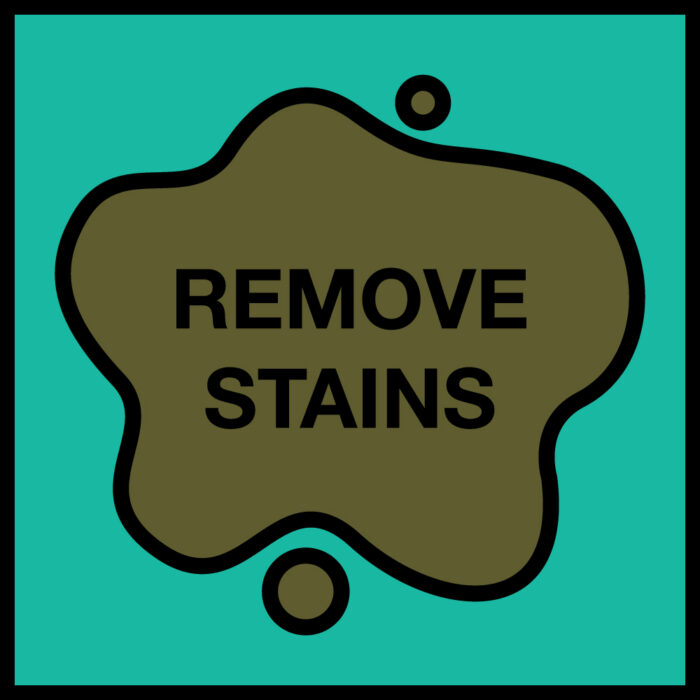 6. Embrace your inner housewife.
6. Embrace your inner housewife.
No, not to cast hard won feminism aside, but the women who came before us knew how to remove stains and save the garment beneath. Turn to Google. For almost every stain, there’s a trick to remove it which may not involve a hot wash.
Overall, it is useful to remember that those tiny care labels, that few of us read anyway, are there as much to cover the big backs of the brands who manufactured the clothes as they are to instruct us how to look after them. Few clothes – which is not the same as no clothes – are truly dry clean only. Exercise common sense and try the most gentle, cold cycle.
We are in such uncertain times. In a moment of human history when so many of us are losing those we love, no fool would argue that solace lies in putting on a wash. Yet instead of being viewed as drudgery, household chores can provide routine and small domestic moments that take our minds away and even, if you are fortunate enough to have outdoor space, be the source of moments of joy. Our mothers, our grandmothers may have gone to barricades to take our lives out of the home and to enrich us through our engagement with the big wide world, but while we are at home, there is nothing wrong with embracing hanging up washing and watching it billow against a big blue sky as a little moment of joy.
Illustrations by Beci Orpin
For more tips on washing your clothes take a look at AEG’s Care Label Project.
“90 % of the clothes we own are thrown away long before they should be, and we still insist on using outdated care instructions from the 1950s. A change is needed.”
The Care Label Project is Electrolux’s way as appliance makers, designers and manufacturers to inspire, educate and update the way we all care for our clothes. We have to stop labelling our delicate fabrics with “Dry Clean Only”, stop washing at higher temperatures and stop being afraid of putting wool in our machines. In fact, the very care labels that are supposed to guide us often make us more confused.
With The Care Label Project, we’re turning this around. To start, we’re launching a completely new care label – “DON’T OVERWASH” – alongside an exclusive collection of designer garments with lab-tested care ad- vice and a modern fabric care guide.




